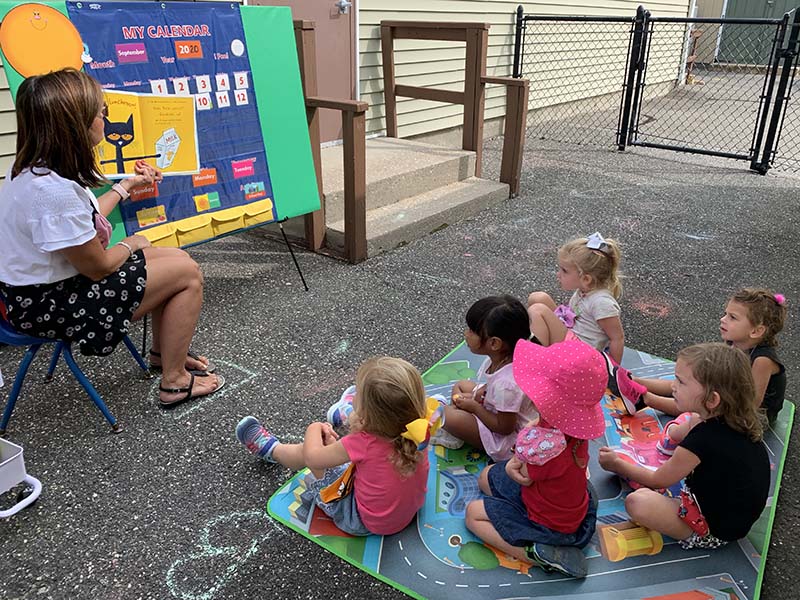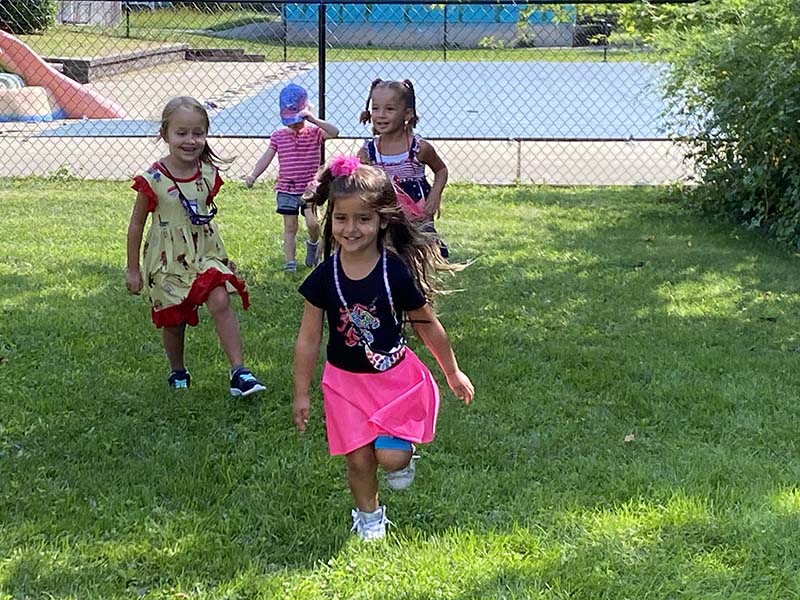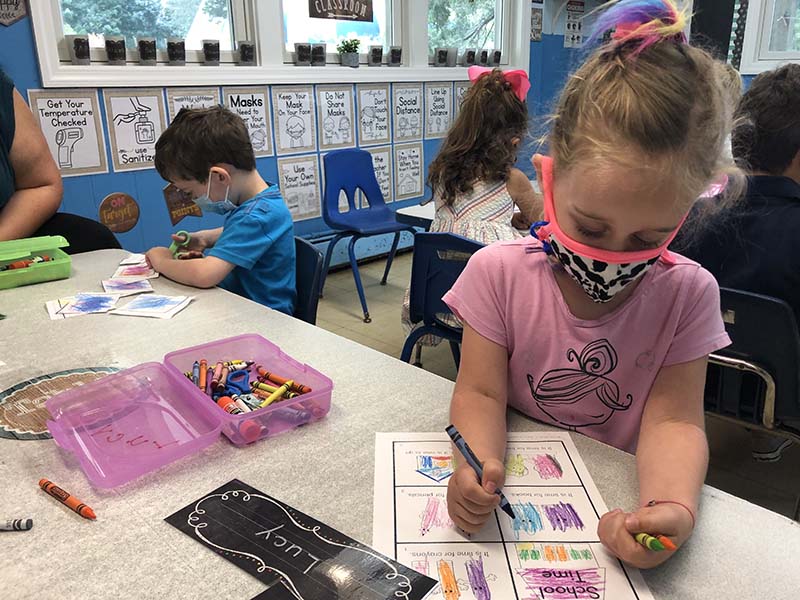September 15, 2020

Decision-making can be difficult, especially in the midst of a global pandemic where uncertainty looms and questions abound. How long will this last? What long-term toll will this virus take on our finances, relationships, childrens’ development, and mental and physical well-being? And how do we control our fear, and even panic, in the face of the unknown, as well as the anxiety and depression that can descend with chronic uncertainty?
The answer lies in the space between our ears. Our brain has evolved mechanisms for overriding immediate impulses, once our more “rational” prefrontal cortex has time to evaluate the situation. Your “fight or flight” response may be triggered simply by the words “global pandemic”, or by someone refusing to wear a mask in a public area. But it’s also adaptive to process danger signals calmly so you can pivot and respond in a rational way, elevating new facts even in the face of an inner voice that screams RUN!
As both a parent and a neuroscientist, I am compelled to consider my emotions together with objective facts to gain perspective on whether or not to send my children (3 and 6) to in-person school this year. Based on my assessment of the science, and taking into account the risk-reward ratio, the conclusion for my family as of right now is yes, and I’d like to share some of the reasons why.
First and foremost, the COVID numbers look good in New York. As I write this the infection rate has been under 1% for the last three weeks. And New York is leading the nation on COVID testing. We are testing more than 6 times the target identified by the Harvard Global Health Institute to mitigate the spread of COVID-19, and have an effective tracing program in place.
It is also important to take into account the distancing and mask-wearing plans put forward by each individual school, and the containment protocols if students or teachers do test positive. On a Zoom meeting last week with school administrators, myself and other parents peppered the principal with questions about quarantine rules, temperature checks, pick-up and drop-off, and each aspect of the unprecedented school year about to commence. And we left with a sense that yes, the school has a smart plan in place to mitigate the risk.
There is also developmental psychology and neuroscience to take into account, which weigh heavily on the “reward” side of the scale. The brain of a young child has an extraordinary capacity for plasticity, meaning change or flexibility in neural wiring. For example, up until age 7 or 8 years old, a child can recover language function if their language dominant hemisphere (usually the left side) is damaged. By age 10, children brought up unilingually have difficulty learning to speak an unaccented second language. This “sensitive period” for language development prior to age 10 also applies to the domains of cognitive, social, emotional, and physical development, for which the school environment is crucial.
During sensitive periods, environmental stimulation and learning have a higher impact than at any other time. Our brains are sculpted like clay by our experiences over the course of our lives, with our genes providing the raw material, as well as a few pre-formed contours. As neurons are wired up in early childhood, the clay hardens. So having enriched cognitive, social and emotional stimulation during childhood is even more important in many ways than in adulthood, because it builds the foundation of the brain and mind. Keeping our kids home to protect them (and ourselves) from possible coronavirus infection has undoubtedly saved lives, but it comes at the cost of depriving them of crucial stimulation (or at the cost of exhausting ourselves and derailing our careers trying to provide it through homeschooling). Clearly there are dangers associated with over-cautiousness as well as dangers associated with carelessness.
Further, being able to play and socialize with children their own age is key for emotional development. The most significant aspect of children’s play is that it allows them to try out new roles and master difficult feelings, including learning conflict resolution from situations that arise spontaneously during play. Deprivation of socialization during these sensitive periods can precipitate or exacerbate mental health issues, including depression and anxiety.
There is no all-encompassing right answer to the question of in-person schooling, and every parent’s decision is personal and valid, based on their evaluation of the risk-reward ratio and most-importantly on the state of infection control measures in their county, state, and school district. We humans are innately risk-averse, a legacy of our evolutionary history, which means it requires deliberative effort to seek out data and make informed, rational decisions for our families.
There will always be risk involved in any choice, in any direction, but my hope is that psychological and neuroscience perspectives are not excluded from the scale when making decisions that affect the development of our children. As for my family, we are happy to have sent our children to Park Shore for Summer Day Camp, and we will be sending my son there for preschool starting in September.
By Dr. Heather Berlin, PhD, MPH
Dr. Heather Berlin is a dual-trained cognitive neuroscientist and clinical psychologist, and Assistant Clinical Professor of Psychiatry at the Icahn School of Medicine at Mount Sinai in NY. She explores the neural basis of impulsive and compulsive psychiatric and neurological disorders with the aim of developing novel treatments. She is also interested in the brain basis of consciousness, dynamic unconscious processes, and creativity. Clinically, she specializes in lifespan (child, adolescent, and adult) treatment of anxiety and impulsive and compulsive disorders (e.g. OCD), blending her neural perspective with cognitive behavioral therapy, mindfulness, and humanistic approaches.
Dr. Berlin received her doctorate from the University of Oxford, Master of Public Health from Harvard University, and Master’s in Psychology from the New School for Social Research. She completed her NIMH post-doctoral fellowship at the Icahn School of Medicine at Mount Sinai and trained in clinical neuropsychology at Weill Cornell Medicine in the Department of Neurological Surgery. She has published over 40 peer-reviewed articles and chapters in textbooks and high-impact journals.
Dr. Berlin is a visiting scholar at the New York Psychoanalytic Society and Institute, and was a Visiting Professor at Vassar College, the Swiss Federal Institute of Technology/University of Zurich, and The Hebrew University of Jerusalem. She is the recipient of numerous honors including the Young Investigator Award from the American Neuropsychiatric Association, the Young Investigator Award from the National Education Alliance for Borderline Personality Disorder, and the Clifford Yorke Prize from the International Neuropsychoanalysis Society. She was honored as one of Stony Brook University’s “40 Under Forty”, and won the BBC’s “University Challenge” quiz show as part of the Magdalen College, Oxford team.
Passionate about science communication, destigmatizing mental illness, and promoting women in STEM, Berlin is a committee member of the National Academy of Sciences’ Science and Entertainment Exchange and the American Association for the Advancement of Science’s (AAAS) Committee on Science and Technology Engagement with the Public. She co-hosts StarTalk with Neil DeGrasse Tyson, hosted television series on PBS and the Discovery Channel. Dr. Berlin also co-wrote and starred in the critically acclaimed off-Broadway and Edinburgh Fringe Festival shows, Off the Top, about the neuroscience of improvisation, and Impulse Control, about the science of impulsivity. She has made numerous media appearances including on the BBC, History Channel, Netflix, National Geographic, and TEDx, and was featured in the documentary film Bill Nye: Science Guy.


